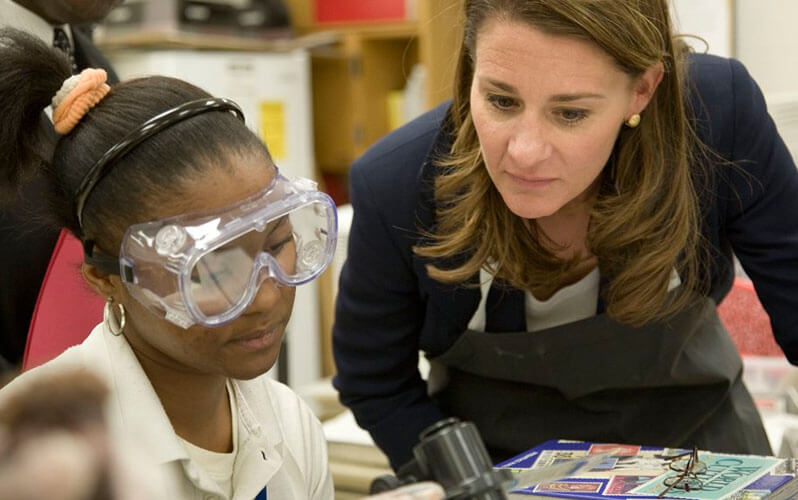Ultius Blog
How Socialism Could Solve the Problem of Climate Change
The problem of climate change
By now, almost everyone has heard about how global warming and climate change. This refers to how the Earth gradually heating up over time, and how this phenomenon could have potentially catastrophic effects for the human species in the near future. When you hear the phrase climate change, though, your mind probably goes straight to politics. The fact of the matter is that while many respected scientists agree that climate change is very real, climate change is still a point of debate for the general public. Many Americans believe that climate change is not real or is not occurring. According to Seth Motel of Pew Research Center, 39 percent of Americans do not believe that there is solid evidence for climate change, and 52 percent of Americans do not believe that climate change constitutes a serious threat to the United States.
Brilliant minds are concerned about climate change
Despite this basic disagreement, though, many brilliant minds have begun to proceed on the assertion that climate change is in fact real, and that the human race must do something about it if we are to ensure our survival as a species. These include both prominent politicians as well as other private citizens. Notably, Bill Gates, the billionaire founder of the corporation Microsoft, has become an increasingly vocal advocate for the cause of doing something about climate change.
Socialism and Bill Gates' views on climate change
More will be said about this below. For the time being, the important point is that there are many stakeholders who are taking the problem of climate change very seriously. This article will begin with a review of the actual evidence regarding climate change, and it will conclude that Bill Gates and others are worrying about this problem with good reason.
The article will proceed to discuss Gates himself and his own ideas about climate change. Specifically, the article will focus on Gates' general belief that socialism is the answer to climate change. After discussing Gates and his views, the article will shift into a consideration of why Gates is likely correct in making this suggestion. The article argues why Gates is correct and why a kind of socialism is necessary for the human species to combat climate change. This is under the assumption, of course, that climate change is a real thing, which itself will be shown to be supported by the relevant empirical evidence.
The evidence of climate change
If we're going to talk about the problem of climate change, it is first necessary to consider the evidence on why we should even be having this conversation at all. (After all, there's no point in trying to fix a problem if it doesn't exist—and many Americans are not in fact convinced that it exists.) It is very important to cut past the politics of this issue and turn attention to the actual objective evidence about climate change produced by scientists who have dedicated their lives to studying this issue.
Within the scientific community, there would seem to be a well-nigh consensus that the Earth has in fact been heating up over the years. One would only have to look at the actual numbers to come to the same conclusion. NASA itself has presented a broad range of scientific evidence in favor of this thesis.
How sea level measures climate change
Sea level is a good measurement for climate change. If or when the Earth heats up, the polar ice caps will start to melt, which make the overall water level in the oceans to rise. According to NASA, the average sea level of the planet has risen by over 200 millimeters, or about 7.9 inches, over the course of the past 150 years. Although this may seem like a small number, it is quite significant when we're talking about the oceans.
This is objective evidence that the polar ice caps are in fact, melting. This also means that climate change is indeed, factual. If the Earth were not heating up, there would be no reason for the polar ice caps to melt.
Changes in the global temperature reflect climate change
It is also possible to evaluate the reality of climate change by directly looking at changes in the global temperature of the Earth over time. The numbers here also strongly indicate that climate change is a reality and not a myth. In fact, the evidence shows that on average, the world is almost 2 degrees Fahrenheit hotter in the year 2016 than it was in the year 1880.
The change in sea levels discussed previously is indirect evidence of climate change. But the numbers reported right above are direct evidence: the numbers actually show that the planet is getting hotter over time. There is no other way to interpret this data.
Why do small changes in temperature matter?
From the perspective of everyday life, the numbers reported above may seem awfully small: you may wonder why it is worth about a rise in the global temperature of 1 or 2 degrees Celsius (which is about 1.8 to 3.6 degrees Fahrenheit). And basically, the answer to this has to do with the basic chemical properties of none other than water.
Important definition: Formula for converting C to F: 1 degree C = 1.8 degrees F.
Water has a very specific freezing point, which is 32 degrees F. Whether it is 33 degrees F or 31 degrees F outside is the difference between whether it's going to rain or whether it's going to snow. So, if the temperature rises by even a little, then the polar ice caps will begin to melt, which will result in the oceans rising, which will result in widespread flooding in lands that are situated below sea level.
Moreover, in hotter places, a rise in global temperature levels can mean the onset of drought. For stakeholders invested in the issue of climate change, 2 degrees C, or 3.8 degrees C, has become a kind of magic number: it is past this point that scientists predict that catastrophic effects will begin to emerge. As Alissa Scheller has written for The Atlantic:
"This may sound like a small uptick, but the implications are profound. Rising temperatures will destroy plant and animal habitats, and reduce yields of important food crops. More people will be exposed to the ravages of flooding and drought."
In short, while about 4 degrees F may seem like a small number in everyday life, it is profound when it comes to a consideration of climate change. A global change of 4 degrees F (and a change of about 2 degrees F has already occurred) would completely disrupt the delicate ecology of the planet, with dire implications for the human species as well.
Are people responsible for global warming?
One last thing to consider here is the question of whether human beings are actually making climate change happen, or whether it is a natural cycle that the planet will experience anyway. This latter thought would perhaps be a comforting idea. The crucial evidence against it, though, consist of the evidence that correlates data about carbon dioxide emissions directly with the other data from NASA that has been discussed above.
Carbon dioxide in released into the atmosphere through the process of combustion—and it is released in massive amounts when materials such as oil and gas are the primary energy sources for an entire society. Carbon dioxide emissions have skyrocketed since the Industrial Revolution, which occurred in the late 1700s; and this time frame is exactly correlated with the unprecedented warming of the planet that is recorded in the scientific data that has been discussed above.
These points are supported by findings reported by the organization called the Union of Concerned Scientists. And they provide clear evidence not only that climate change is real, but that combustion of fossil fuels by human beings in the industrial age is the primary driver of this phenomenon.
World leaders acknowledge the dangers of climate change
A major breakthrough in the global recognition of climate change occurred on the 22nd of April 2016, with the signing of the Paris Agreement, which involved signatory nations pledging to work toward reducing carbon emissions. Here's a global map of parties to this treaty.
The Paris Agreement has been criticized by some commentators on the grounds that is more symbolic than anything else, with little hope of full practical implementation. This belies the point, though, that at the present time, even symbolic recognition of climate change at this global level would be a major step forward.
In general, the leaders of nations are divided into two camps regarding climate change: there are the leaders of nations that produce considerable amounts of emissions, and there are the leaders of nations that stand to suffer the most from climate change. The Cook Islands, for example, produces virtually no emissions at all; but the leader of the Cook Islands is highly invested in the Paris Agreement, because if climate change does happen, the Cook Islands will probably end up underwater.
On the other hand, the United States is one of the single greatest releasers of emissions in the world; indeed, it would seem that the United States is second only to China in this regard (see Climate Analytics). In fact, the data indicates that together, the United States and China are responsible for 37.98 percent of all emissions in the world.
American leadership is thus essential for the project of reducing global emissions.
Many republicans and capitalists are skeptical of climate change
Within American politics, it would seem that many members of the Republican Party—including previous contenders for the 2016 presidential nomination and the newly elected president, Donald J. Trump himself—either flatly reject that climate change is real, or else or rest in a skepticism that leads to inaction. This is troubling, to say the least. Even more troubling is the fact that the very day President Trump took office, all evidence and mention of climate change on the official site Whitehouse.gov vanished completely.
However, this is not the time or the place to delve into these political matters. For present purposes, all that needs to be said is that this position on climate change among Republicans constitutes a serious break from the global consensus of world leaders regarding the nature and threat of climate change. This article will proceed on the basis of this consensus, which is again strongly supported by the best evidence on this subject.
Bill Gates, a philanthropist
Bill Gates in now a powerful advocate regarding the issue of climate change; but of course, he had a long and interesting history before entering into this role. To the general public, Gates is known first and foremost as the founder of the tech company Microsoft. Gates was born in the year 1955, and he is currently 60 years old.
This is a timeline of Gates and Microsoft that has been provided by Alice Kreit and Jessica Wanke of NPR. It is titled, perhaps appropriately: "From Geek to Gazillionaire to Do-Gooder."
| Year | Event |
| 1955 | Gates is born. |
| 1976 | The trademark for Microsoft is registered. |
| 1978 | Microsoft makes over $1 million in sales. |
| 1981 | The operating system MS-DOS is developed. |
| 1987 | At age 31, Gates becomes the youngest billionaire of all time. |
| 1995 | The seminal Windows 95 operating system goes live. |
| 2000 | Gates relinquishes his role as Microsoft's CEO. |
| 2006 | Gates shifts his attention to his charitable Gates Foundation. |
Since then, Gates has turned from business to philanthropy, with the Bill and Melinda Gates Foundation and its work having become as important a priority to him as his company Microsoft previously was.
The Bill and Melinda Gates Foundation
The Gates Foundation is a philanthropic charity started by Gates and his wife. The following is the effective mission statement of the organization, as reported on its own web page:
"We see equal value in all lives. And so we are dedicated to improving the quality of life for individuals around the world. From the education of students in Chicago to the health of a young mother in Nigeria, we are catalysts of human promise everywhere."
The organization has several departments and is engaged in a wide range of projects.
The Gates Foundation has run into some controversy over the course of the years. Tom Paulson of Humanosphere, for example, has reported that independent analysts have given the organization very poor scores for transparency and accountability. And likewise, Charles Piller et al. of the Los Angeles Times reported in the year 2007 that the Gates Foundation invested considerable amounts of money in Dutch Royal Shell and Exxon Mobil—gasoline companies. This would clearly conflict with Bill Gates' current advocacy regarding climate change, as reliance on oil is one of the main causes of climate change.
For all that, though, there would appear to be a virtual consensus among commentators that the Gates Foundation has, on the balance, done excellent work for the furtherance of humanity, including work involving the provision of vaccines for children in poor regions of the world such as Africa. This is at least partly because of the enormous resources at the disposal of the Gates Foundation: Bill Gates has enormous wealth, and even if only a fraction of the resources of the foundation were ultimately channeled in a way that they achieved objective benefits, this would in and of itself amount to a huge impact.
Bill Gates, socialism, and climate change
In any event, it is quite clear that Bill Gates and his Foundation have become more and more committed to the struggle against climate change over the years. Damian Carrington of The Guardian, for example, reported in May 2016 that the Gates Foundations has divested all of its holdings in the fossil fuel behemoth BP: this is fully congruent with Gates' own increasingly vocal advocacy for the development of an alternative energy resources and infrastructure.
Important definition: Divestment: the practice of pulling one’s financial investments (i.e. money) out of a company, usually for moral reasons.
Moreover, Bill Gates has seemed to change his views on the issue of divestment over time. His ideas on this matter must thus be understood as perhaps experiencing a process of energy. For example, a mere 6 months before the news reported in the previous paragraph, Alex Lenferna of Salon lambasted Gates for defending his investments in the oil company Exxon Mobil. It is somewhat difficult to evaluate the extent to which the present-day Gates would more or less agree with this harsh evaluation of his previous views.
Whatever the case is with that story, the fact of the matter is that Bill Gates gave an important interview to The Atlantic in November 2015, and that interview contains ideas that are central to the main purpose of the present guide. In particular, this is the interview that has led commentators to declare that according to Gates, socialism is the answer to climate change. It is thus worth turning to the actual text of the interview, which Gates gave to James Bennett of The Atlantic. The quotes in the following section will be from this source.
Bill Gates on the solution to climate change
The main thesis about climate change that has been put forth by Gates is that the free market and the private sector are utterly unequipped to deal with this challenge in an effective way. And this is due to the structure of capitalism itself. Gates himself has said the following on why the free market will not develop new sources of energy in an effective way:
"Well, there's no fortune to be made. Even if you have a new energy source that costs the same as today's and emits no CO2, it will be uncertain compared with what's tried-and-true and already operating at unbelievable scale and has gotten through all the regulatory problems."
In other words, the free market makes it very difficult for new sources of clean energy—which are essential for fighting climate change—to emerge. Moreover, private actors may thus lack incentive to invest in such research and development, insofar as this would contradict their own financial self-interest. Here's Gates again:
"So, if you go back to various energy innovators, actually, they didn't do that well financially. The rewards to society of these energy advances—not much of that is captured by the individual innovator, because it's a very conservative market."
Gates explicitly contrasts this with the technology market, in which he himself of course became a billionaire. That would be a very progressive market.
The solution that Gates has proposed to this situation consists of American government itself making massive investments in research and development for a new energy infrastructure, such as wind energy:
"Realistically, we may not get more than a doubling in government funding of energy R&D—but I would love to see a tripling, to $18 billion a year from the U.S. government to fund basic research alone."
The idea here is that the government, unlike private actors, can operate at a financial loss and ignore the profit margin, for the sake of doing what is good for society as a whole.
| Author | Main idea | |
| Harvesting the Biosphere (2013) | ||
| Vaclav Smil | Humans are harvesting the biosphere (plants and animals), and this is causing serious environmental changes. | |
| Reinventing Fire (2011) | ||
| Amory B. Lovins | There are scenarios where major sectors of the economy could be off fossil fuels and nuclear energy by the year 2050. | |
| Hot, Flat, and Crowded (2011) | ||
| Thomas L. Friedman | The United States needs to lead a green energy revolution; this is the only way to address the problem of climate change. | |
These books are good reads, but they also seem to reflect the fact that Gates is of course not an environmental scientist. Rather, one gets the impression that he is an amateur with a passionate interest in the subject, and he would like to use his powerful platform to get other people interested as well.
In any event, there are two important themes that seem to run through Gates' reading list. The first is that the current economic system is causing people to consume the Earth's resources at an alarming rate, which is contributing to climate change; and the second is that a revolution in energy infrastructure is necessary in order to halt and reverse climate change. Both these points are essentially valid, and it would thus seem that Gates is on the right track.
It is worth turning attention now, though, to the question of why Gates is right about capitalism being unable to address climate change, and why a form of socialism may be the answer to this problem. It is time to turn to the idea of the tragedy of the commons.
How socialism could have prevented the "tragedy of the commons"
The concept of the tragedy of the commons was first developed in the year 1833 by a man named William Forster Lloyd. And the main idea can be stated in the following way:
"When individual actors pursue their own rational self-interest regarding a shared resource, the collective result is detrimental to the community as a whole, including each of those actors themselves."
The old example is about shared land, or the "commons." Imagine a community of ranchers. If each individual rancher lets his own cattle graze too much on the commons, then the land will die—and then no one will able to graze cattle there anymore. This is one example of the “tragedy of the commons”.
This idea was revived in 1968, when an ecologist named Garrett Hardin published an article on the subject in Science magazine. At this point, people began to apply the idea to a wide range of ecological and environmental phenomena—including climate change.
The tragedy in action - Water use in a drought
This tragedy of the commons is playing out right now in states like California, and Nevada. Both states get water from the Colorado River. Lake Mead, which the Colorado River fills, is located just outside of Las Vegas is the largest man-made reservoir in the United States. Like California, Nevada is also in the middle of a record drought, and Lake Mead is only at 37% capacity according to Time. If water isn’t shared and conserved responsibly, it could be gone in no time.
In response, the Southern Nevada Water Authority has placed restrictions on how much water business can use, and set limits on how often homeowners can water their lawns. If this water use was unregulated, large cities, consisting of dense populations of people in the desert communities would be devastated. Las Vegas is the busiest tourist city in the United States, and gets almost all of its water from Lake Mead. If water isn’t closely regulated, Las Vegas could be a ghost town in the near future.
The tragedy and climate change
Now, consider: climate change is a serious threat to the human species as a whole. Therefore, it would clearly be in the best long-term interest of every individual person to work toward preventing climate change from happening. However, this may contradict the way that the capitalist economic system and the profit motive expects and compels people to act.
The main point is: in many cases, it may be profitable for a person, a business, or even a nation to act in a way that will make climate change worse.
Let's think about the ranchers again. From the perspective of each individual rancher, there is an economic self-interest for the rancher to graze his own cattle as much as possible. His cattle would be well-fed, and since the land is shared, it would be free to boot. But: if everyone does this, then the shared resource would no longer exist. And if some people do it, then those people are unfairly exploiting the rest of the people who play by the rules.
Switching back to climate change: Persons, companies, and nations may have a self-interest in polluting the atmosphere and causing climate change (for example, in terms of ease of lifestyle, or money made on oil. This becomes especially complicated in regards to multi-national companies, like OPEC). But if everyone does this, climate change will continue to get worse, to the point that there would be catastrophic effects for the human species.
And even if some people do it, then they are breaking the rules of the community—and when it comes to climate change, even some people doing it may be enough to ruin the entire planet for the entire human species. For example, if the United States continues to use the "commons." excessively, then the Cook Islands will end up underwater, through no fault of its own.
The failure of the "invisible hand"
In old-fashioned capitalist economics, there a kind of faith that somehow, a huge number of individual persons, each acting on their own rational self-interest, would ultimately produce an outcome that is optimal at the level of the community as a whole. This is the gist of what the famous Adam Smith called the invisible hand. The discussion above, though, shows that when it comes to dealing with the problem of climate change, the invisible hand has clearly failed.
The problem is that the invisible hand would work, if society was filled with highly conscious people who take the big picture into account when making decisions about their own rational self-interest. Most people, though—included many big businessmen—would seem to lack any kind of corporate social responsibility. And what's worse, the financial profit motive in capitalism would seem to encourage them to stay that way.
What is socialism, and can it help?
An interesting point to remember is this: Bill Gates himself has never used the word socialism to describe his economic vision for the future of the species and the planet. This is just how commentators have tended to describe his ideas. However, it may be worthwhile to follow this lead and now answer the question: Can socialism save the planet from climate change? Responding to this will first of all require a clear definition of what socialism is.
Different Americans clearly seem to have different connotations associated with socialism. The older generation, for example, probably associates socialism with communism, which makes them think of the Soviet Union—which, of course, was a mortal enemy of the United States. On the other hand, Max Ehrenfreund of the Washington Post has reported that fully one-third of the Millennial generation is in favor of socialism—as was made clear, perhaps, by their support of the self-avowed socialist Bernie Sanders for the Democratic presidential nomination.
A pragmatic definition of socialism
There is no need to get too theoretical about the nature of socialism, here. The important point is that commentators saw Bill Gates' statements as an advocacy for socialism. And in this context, socialism can just be pragmatically defined as:
Extensive investment in and regulation of various sectors of the economy by the federal government.
Gates said that the government needs to invest heavily in and exercise regulation over the energy sector within the United States. And this is the extent to which he has suggested that socialism is the answer to climate change.
The word "socialism" itself seems to be dirty to many Americans. But it is worth pointing out here that several widely accepted governmental programs, such as Medicare and Social Security, are essentially socialistic in nature. These programs were created as a response to the Great Depression, on the basis of the insight that governmental intervention was necessary in these cases for ensuring the welfare of society as a whole. We may be reaching a similar point with respect to energy infrastructure and climate change.
The tragedy of the commons - A need for regulation
Now, the discussion of the tragedy of the commons above has clearly indicated that in order to prevent that tragedy, there is need for some kind of regulation. Either the individual rancher must decide for himself to not graze his cattle too much, or the community as a whole must make him not graze his cattle too much.
That is, the farmer must either morally regulate himself, or accept external legal regulation; but either way, regulation is essential. If a society was filled with highly moral and conscious people who genuinely cared about the community of the entire species, then internal regulation may be enough. But this is probably unreasonable. And that means that external, governmental regulation becomes essential.
Bill Gates' call for government regulation of the energy sector
In this context, Bill Gates is clearly correct in affirming that socialism is the answer to the problem of climate change. Under the profit motive of capitalism, stakeholders will:
- have no incentive to invest heavily in experimental energy technologies that may not produce an immediate financial benefit; and
- actually have an incentive to continue exacerbating climate change, as this is congruent with how they see their own self-interest through destructive methods, such as fracking.
This is nothing other than a complex form of the tragedy of the commons: Capitalism encourages people to act in a short-sighted way, to the detriment of the community as a whole. Heavy government investment in and regulation of the energy sector would be the way to prevent this tragedy from occurring. As that's socialism, it is in fact true that socialism is the answer to climate change. This logically follows from everything that has been said thus far over the course of this guide. It is just important to not have biased hang-ups about the word socialism as such.
Works Cited
Bennett, James. “We Need an Energy Miracle.” The Atlantic. 2015, November. Web. 21 Oct. 2016.
<http://www.theatlantic.com/magazine/archive/2015/11/we-need-an-energy-miracle/407881/>.
Bill and Melinda Gates Foundation. “Who We Are.” Author, 2016. Web. 21 Oct. 2016.
<http://www.gatesfoundation.org/Who-We- Are>.
Carrington, Damian. “Bill and Melinda Gates Foundation.” The Guardian. 12 May 2016. Web. 21 Oct. 2016.
<https://www.theguardian.com/environment/2016/may/12/bill-and-melinda-gates-foundation-divests-entire-holding-in-bp>.
Climate Analytics. “Paris Agreement Ratification Tracker.” Author, 2016.Web. 22 Oct. 2016.
<http://climateanalytics.org/hot-topics/ratification- tracker.html>.
DiChristopher, Tom. “The White House website’s page on climate change just disappeared”. 21 Jan. 2017. Web. CNBC.
<http://www.cnbc.com/2017/01/20/the-white-house-websites-page-on-climate-change-just-disappeared.html>
Ehrenfreund, Max. “A Majority of Millennials Now Reject Capitalism, Polls Show.” Washington Post. 26 Apr. 2016. Web. 22 Oct. 2016.
<https://www.washingtonpost.com/news/wonk/wp/2016/04/26/a-majority- of-millennials- now-reject- capitalism-poll- shows/>.
Gates, Bill. “Books: Energy.” Gates Notes. 2016. Web. 22 Oct. 2016.
<https://www.gatesnotes.com/Books#Energy>.
Hardin, Garrett. “The Tragedy of the Commons.” Science 162.3859 (1968): 1243-1248. Web. 22 Oct. 2016.
<http://science.sciencemag.org/content/162/3859/1243.full>.
Lenferna, Alex. “Bill Gates Gives Exxon Cover.” Salon. 7 November 2015. Web. 21 Oct. 2016.<http://www.salon.com/2015/11/07/bill_gates_gives_exxon_cover_the_gates_foundation_is_deadly_wrong_on_climate_change_fossil_fuels/>.
Paulson, Tom. “Gates Foundation Scores ‘Very Poor’ on Transparency Index. Humanosphere. 24 Oct. 2013. Web. 21 Oct. 2016.
<http://www.humanosphere.org/basics/2013/10/gates-foundation-scores-poor-transparency-index/>.
Motel, Seth. “Polls Show Most Americans Believe in Climate Change, but Give It Low Priority.” Pew Research Center, 23 Sep. 2016.Web. 21 Oct. 2016.
<http://www.pewresearch.org/fact-tank/2014/09/23/most-americans-believe-in-climate-change-but-give-it-low-priority/>.
Kreit, Alice, and Jessica Wanke. “Timeline: Bill Gates.” NPR. n.d. Web. 21 Oct. 2016.
<http://www.npr.org/news/graphics/2008/june/bill_gates/gates_timeline_04.html>.
Lloyd, William Forster. Two Lectures on the Checks to Population. 1833. Web. 22 Oct. 2016.
<https://archive.org/details/twolecturesonch00lloygoog>.
NASA. “Climate Change: How Do We Know?” Global Climate Change: Vital Signs of the Planet. 2016. Web. 21 Oct. 2016.
<http://climate.nasa.gov/evidence/>.
Piller, Chares, Edmund Sanders, and Robyn Dixon. “Dark Cloud over Good Works of Gates Foundation.” Los Angeles Times. 7 Jan. 2007. Web. 21 Oct. 2016.
<http://www.latimes.com/news/la-na-gatesx07jan07-story.html>.
Scheller, Alissa. “The Difference Two Degrees Makes.” The Atlantic. 1 Oct. 2015. Web. 21 Oct. 2016.
<http://www.theatlantic.com/international/archive/2015/12/cop-21-two-degrees/418263/>.
Smith, Adam. The Wealth of Nations. New York: Bantam, 2003. Print.
Union of Concerned Scientists. “How Do We Know that Humans Are the Major Cause of Global Warming?” Author, 2016. Web. 21 Oct. 2016.
<http://www.ucsusa.org/global_warming/science_and_impacts/science/human-contribution-to-gw-faq.html>.
- MLA Style
- APA Style
- Chicago Style
- Turabian
Ultius, Inc. "How Socialism Could Solve the Problem of Climate Change." Ultius | Custom Writing and Editing Services. Ultius Blog, 15 Mar. 2017. https://www.ultius.com/ultius-blog/entry/how-socialism-could-solve-the-problem-of-climate-change.html
Copied to clipboard
Click here for more help with MLA citations.
Ultius, Inc. (2017, March 15). How Socialism Could Solve the Problem of Climate Change. Retrieved from Ultius | Custom Writing and Editing Services, https://www.ultius.com/ultius-blog/entry/how-socialism-could-solve-the-problem-of-climate-change.html
Copied to clipboard
Click here for more help with APA citations.
Ultius, Inc. "How Socialism Could Solve the Problem of Climate Change." Ultius | Custom Writing and Editing Services. March 15, 2017 https://www.ultius.com/ultius-blog/entry/how-socialism-could-solve-the-problem-of-climate-change.html.
Copied to clipboard
Click here for more help with CMS citations.
Ultius, Inc. "How Socialism Could Solve the Problem of Climate Change." Ultius | Custom Writing and Editing Services. March 15, 2017 https://www.ultius.com/ultius-blog/entry/how-socialism-could-solve-the-problem-of-climate-change.html.
Copied to clipboard
Click here for more help with Turabian citations.


















